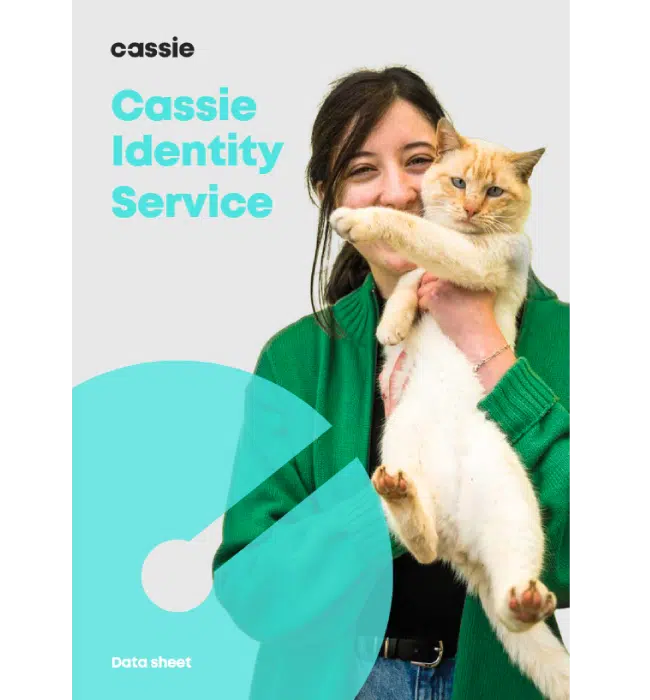The impact of a cookieless future: Adapting to a privacy-first world
Posted: March 29, 2023
As the digital landscape braces for transformative changes due to new privacy laws and shifts within the industry, businesses must rethink their digital marketing strategies to consider the impact of a cookieless future. With Google set to phase out third-party cookies, this article delves into the evolving dynamics of digital marketing and offers strategies to help companies navigate and succeed in the cookieless future.
What’s driving change in Digital Marketing?
Here’s a brief overview of the main factors steering the internet towards a cookieless future:
1. Increasingly strict privacy regulation
Privacy laws in the US and worldwide are clamping down on targeted advertising and cookies.
- Five US state privacy laws take effect throughout 2023. They all govern how businesses track people online. Some require websites to recognize “global opt-out” browser and device mechanisms.
- The EU General Data Protection Regulation (GDPR) impacts cookie consent. While the GDPR is not new, European regulators are taking an increasingly strict interpretation of the law—and are making significant progress on enforcement.
- Other laws, such as the EU’s Digital Markets Act, also have implications for how large platforms use data.
- According to the UN, nearly three-quarters of countries now have comprehensive privacy and data protection laws, and many are working on new or updated draft legislation.
Consumer attitudes are also shifting, Research suggests that increased concerns about online privacy and tracking are contributing to the push towards a cookieless future.
2. Industry developments
For decades, businesses have monitored people’s online activities. This could soon change in two broad ways.
- Online privacy could improve. Big tech companies are increasingly aware of people’s concerns over their data and are spending billions on improving privacy in their products.
- Large platforms could continue to build “walled gardens”. The changing data landscape might improve privacy, but it also impacts competition. Preventing data-sharing can reinforce big platforms’ market positions.
Two “big tech” initiatives are particularly significant in this regard.
Apple’s App Tracking Transparency (ATT) framework has significantly impacted how businesses collect data about iPhone users, to the frustration of data-hungry companies such as Meta.
And Google’s announced Privacy Sandbox will (eventually) eliminate cookies in Chrome—the world’s most popular web browser.
Many businesses are not prepared for this change. A 2021 study found that 83% of business leaders saw cookies as either “very” or “somewhat” important to their data operations.
Let’s consider how you can leverage opportunities in this new online environment.
Data strategies in the new online landscape
Cookies and other trackers are not the only way to understand your customers. Here are four ways to stay connected with customers in the new digital marketing landscape.
1. Focus on first-party data
With the phased elimination of third-party cookies, businesses face challenges in leveraging “cross-site” behavior—activities that users engage in outside of the direct interactions with your site. To navigate this new landscape, an increased emphasis on first-party data becomes crucial. This type of data comprises information gathered directly from your customers through your digital platforms and can include details such as user preferences, names, email addresses, and transaction histories.
Strategies for collecting first-party data
First-party data collection can be enriched through a variety of strategies, ensuring that businesses continue to gain deep insights into their customer base:
- Surveys and Feedback Forms: Directly engage with your customers to gather insights and preferences through structured surveys or informal feedback mechanisms.
- Loyalty Programs: Implement loyalty schemes that encourage repeat business while providing valuable data about purchase patterns and preferences.
- Direct Marketing Efforts: Use direct communication channels such as email marketing to collect data based on user responses and interactions.
- CRM Integration: Leverage data from Customer Relationship Management (CRM) systems to understand customer behaviors and histories, enhancing personalization and service quality.
Legal and ethical considerations
While first-party data offers higher quality insights and a less intrusive collection method—thus improving the overall user experience—it is essential to navigate the legal and ethical considerations involved. Transparent data collection practices and respecting user consent are paramount, especially under stringent laws like the EU’s GDPR, which governs the usage of any code that stores or accesses information on a user’s device.
Technological developments and first-party data
Further enhancing the scope of first-party data, Google’s Privacy Sandbox initiative proposes “First-Party Sets.” This allows limited tracking across a company’s various online properties under a unified domain, potentially smoothing the user experience while maintaining privacy standards. Additionally, several startups are exploring new universal IDs that align with privacy regulations, offering another avenue for maintaining robust user identification without infringing on privacy.
Remember, though, that EU law still requires consent for many first-party cookies —or any non-essential code that stores or accesses information on a device.
The future of first-party data
The shift toward a cookieless future necessitates a strong pivot towards first-party data. By developing comprehensive strategies for its collection and utilization while adhering to legal requirements, businesses can secure a competitive advantage. This approach not only aligns with the increasing privacy demands of consumers but also sets the stage for building deeper, trust-based customer relationships.
2. Establish new partnerships
To enhance the value of your high-quality first-party data, consider forming strategic partnerships with other companies. Collaborating allows you to augment and enrich your existing datasets with complementary insights, which can be especially beneficial for companies operating in different segments of the same industry.
Benefits of Data Partnerships
- Enhanced Market Insights: Sharing data between partners can reveal new patterns and opportunities, offering a more comprehensive view of market dynamics.
- Expanded Customer Understanding: By integrating diverse data sources, you can achieve a deeper understanding of customer behaviors and preferences across different contexts.
Guidelines for Ethical Data Sharing
However, navigating data partnerships requires careful consideration to maintain legality and protect your company’s reputation:
- Transparency and Consent: Always prioritize transparency with your data practices. Ensure that customer data is shared only with consent and that customers are clearly informed about how their data will be used.
- Regulatory Compliance: The buying and selling of data are governed by strict regulations that vary by region and industry. It is crucial to understand and comply with these laws to avoid legal repercussions.
- Due Diligence: When entering into data-sharing agreements, conduct thorough due diligence on potential partners. Assess their data handling and privacy practices to ensure they meet the standards required by law and your company’s ethical guidelines.
Building Trust through Responsible Practices
Responsible data sharing not only complies with legal frameworks but also builds trust with your customers and business partners. By establishing clear guidelines and maintaining open communication, you can build a culture of transparency and accountability that supports sustainable business growth in a data-driven ecosystem.
3. Explore contextual ads
Many companies are exploring other online advertising approaches that do not rely on cookie data, such as contextual advertising. At the moment, online advertising heavily relies on third-party cookies to store information like user behavior and shopping cart preferences to serve related ads.
Understanding Contextual Advertising
Contextual advertising harkens back to the early days of the Internet when advertisements were directly related to the content of the website. For example, ads for fishing rods on a fishing website were common, without any regard to the specific visitor’s past interests or behaviors. This straightforward approach ensures that ads are relevant to the content being consumed, potentially leading to a better user experience and higher engagement rates.
Advantages of Contextual Advertising
- Privacy Compliance: Contextual ads do not rely on personal data or user tracking, making them inherently compliant with stringent privacy regulations like GDPR.
- Relevancy: Ads are matched with content, ensuring that they are relevant to what the user is currently interested in, which can increase engagement and click-through rates.
- User Experience: By reducing the perceived intrusiveness of ads, contextual advertising can enhance the overall user experience, fostering a more positive perception of both the advertisement and the hosting platform.
Innovations Enhancing Contextual Advertising
Technological advancements are significantly boosting the effectiveness of contextual advertising. For instance, Dailymotion utilizes deep learning technologies to analyze audio, video, and text within content to place highly relevant ads better suited to the user’s current engagement. This method goes beyond simple keyword matching, allowing for a sophisticated understanding of content and context, which can dramatically improve the targeting precision of ads.
4. Consider embracing Google’s changes
As Google progresses with its Privacy Sandbox initiatives, the Topics API emerges as a potentially significant evolution in how digital advertising operates in a cookieless world. This new framework could redefine interest-based advertising by prioritizing user privacy while still allowing advertisers to access valuable insights.
Overview of the Topics API
The Topics API is designed to replace traditional methods of tracking users across the web. Instead of relying on cookies, the API will analyze the content of the websites that users visit and assign these visits to one of approximately 350 broad “topics.” This information is stored locally on the user’s device for a limited period and does not involve external servers, which enhances privacy.
Benefits of the Topics API
- Enhanced privacy: By keeping data on the device and avoiding precise tracking across different sites, Topics API limits the amount of data exchanged, thereby enhancing user privacy.
- Relevant Ad Targeting: Advertisers can access a set of topics related to the user’s recent web activity, allowing them to tailor their advertising messages to align with user interests without infringing on privacy.
- Simplicity and efficiency: For advertisers, using a predefined set of topics can simplify the targeting process, while users benefit from ads that are more relevant to their interests without overtly invasive tracking.
Challenges and considerations
- Effectiveness and Adoption: There is ongoing debate about the effectiveness of the Topics API compared to more traditional, finely-tuned targeting methods. Advertisers may find broad topics less precise, potentially impacting the relevancy of ads.
- Legal and Compliance Uncertainty: The regulatory acceptance of this new form of interest-based advertising is still under scrutiny. It’s crucial for businesses to stay informed about legal developments as they unfold.
- Dependence on Platform Algorithms: Relying heavily on algorithms controlled by large platforms like Google can introduce risks, including changes in policy or algorithm adjustments that could affect advertising strategies unexpectedly.
5. Cassie Identity Service: Enhancing Cookie Management and user recognition
Cassie’s Cookie Management module represents a proactive approach to digital identity management, addressing challenges associated with cookie consent and retention even before they arise. This innovative solution ensures that businesses can maintain a consistent and clear understanding of who their visitors are, which is crucial for developing stronger, more personalized customer relationships.
Key features of Cassie Identity Service
- Proactive Problem Solving: Cassie’s technology anticipates issues by implementing measures to maintain user recognition, even in scenarios where cookies are deleted or automatically removed by browsers.
- Data Restoration Capabilities: By storing critical data elements such as the cookie name, value, and consent expiry date securely in the Cassie Identity Service, it is possible to restore cookies and analytics identifiers to their respective user profiles without requiring the user to repeat consent processes.
- Persistent User Identification: Even when users clear their cookies or their browsers purge cookie data, Cassie can accurately re-identify returning users based on the stored information. This capability ensures that user experiences remain seamless and personalized, enhancing customer satisfaction and loyalty.
Benefits of Using Cassie Identity Service
- Enhanced user experience: Cassie helps in delivering a smoother, more consistent user experience by reducing the friction typically associated with cookie consent and data retention policies.
- Compliance and privacy: Adhering to privacy regulations is simplified as Cassie manages consent and data retention in compliance with global privacy standards, including GDPR. This management is critical in maintaining trust and legal compliance.
- Improved data quality and marketing effectiveness: Accurate identification and restoration of user data mean that marketing campaigns can be more targeted and effective, leveraging historical data and user preferences that might otherwise be lost.
Strategic Advantage
Implementing Cassie Identity Service allows businesses to leverage technology to overcome some of the inherent limitations set by stricter data privacy laws and browser restrictions. By enhancing the capability to consistently recognize and understand visitors, businesses can not only comply with privacy regulations but also advance their customer relationship management and retention strategies.

Data sheet: Cassie Identity Service
Prepare for the cookieless future. Learn more about our Identity Service on our downloadable data sheet.
Cookieless future FAQs
When navigating the complex landscape of digital marketing in a cookieless future, it’s essential to understand the implications and strategic shifts required. Here’s a detailed look at what happens when cookies disappear, the effects of cookie deletion, how companies can thrive without them, and the broader impact on digital marketing:
What does a “Cookieless Future” mean?
A cookieless future refers to a digital environment where the use of third-party cookies is phased out. Third-party cookies have been crucial for tracking user behavior across different websites, enabling personalized advertising and more. This shift primarily aims to enhance user privacy and data protection in response to growing concerns and regulatory pressures.
What will happen when cookies disappear?
The disappearance of cookies, particularly third-party cookies, will fundamentally change several core aspects of digital marketing:
- Loss of Cross-Site Tracking: Marketers will no longer have the ability to track users’ activities across different sites, which will impact ad targeting and retargeting practices.
- Shift Towards First-Party Relationships: Businesses will need to rely more on first-party data collected directly from their interactions with users on their own platforms.
- Increase in Privacy and Trust: As users become more aware of privacy, a move away from cookies could enhance trust in brands that respect user privacy.
What are the effects of cookie deletion?
Deleting cookies has immediate effects on both users and businesses:
- For Users: Deleting cookies often leads to a loss of saved preferences on websites, requiring users to re-enter information. It can also disrupt the personalized experience that many websites offer.
- For Businesses: Companies lose valuable insights into user preferences and behaviors, which can affect website personalization, the effectiveness of advertising campaigns, and the ability to measure user engagement accurately.
What Impact Will a Cookieless Future Have on Digital Marketing?
- Shift to New Metrics: Marketers will need to find new ways to measure campaign effectiveness without relying on cookies.
- Redefinition of Targeting Strategies: The focus will shift from hyper-targeted ads based on extensive user histories to broader segmentations and interest-based targeting.
- Increased Importance of Brand Loyalty: Without cookies, fostering direct relationships and loyalty will become more crucial than ever.
What is the impact of cookie deprecation?
Cookie deprecation leads to a significant shift in how online user data is handled:
- Reduced Ability to Track ROI: Marketers will find it challenging to directly link marketing efforts to sales or conversions without third-party cookies.
- Potential Decrease in Ad Revenue: Publishers might see a decrease in ad revenue as the effectiveness of targeted ads diminishes.
- Innovation in Digital Marketing: Necessity may drive the innovation of new tools and methods that respect privacy while still delivering marketing insights.

